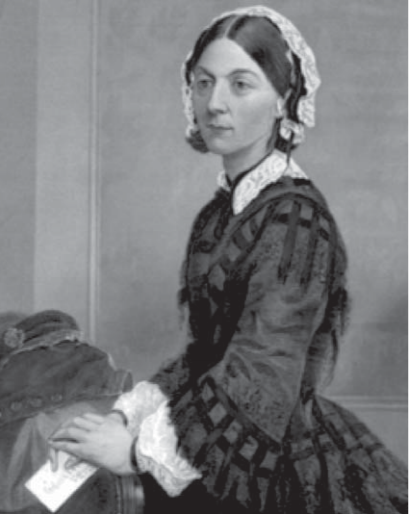We are opening the Success Stories category with Florence Nightingale (12/05/1920 – 13/08/1910), british nurse, writer and statistician, who is considered the mother of nursing and one of the first data scientist in history.

Her story is especially relevant given that, in addition to fighting for the women’s rights and emancipation through the opening of new qualified professional paths, she stood out in the field of nursing for being considered the precursor of modern professional nursing thanks to the creation of the first conceptual model of nursing.
For building this model, Florence applied her statistical and mathematical knowledge, as well as all the data and information that she was collecting during a learning period in which she visited different hospitals, prisons, asylums and orphanages in France, Germany, Italy, Switzerland, Ireland and England.
The efficiency of this new professionalized nursing model was validated under the scope of its application in the high rate of mortality of the casualties of the Crimean War, which had broken out in 1853 after the Russian pretensions of occupying the Danubian territories.
The mortalities within the British army were high, as a result not of the war but of their chaotic sanitary system. The field hospitals had hardly any means and the dirt was indescribable.
Faced with this situation, the British Government decided to send Florence Nightingale to reform the health administration of the army. Upon his arrival, Florence began an arduous task of collecting data in order to analyze the existing health status and present these conclusions to Parliament. To do this, Florence created a chart, known as a polar or rose diagram, which facilitated the visualization and interpretation of all the data collected and which highlighted the higher mortality rate in English hospitals than in the war itself.
Given these data, she convinced Parliament of the need to improve the sanitary conditions of hospitals and as a result, Florence revolutionized aspects such as care for the sick, hygiene and improvement in feeding.

At the end of the war, Florence returned to London and focused on the civil field. She wrote a textbook with her knowledge and founded a nursing school for the training of these professionals. Within this knowledge, it is also worth mentioning the Formulation of a model of Hospital Statistics so that hospitals could collect and generate consistent data and statistics.
Therefore, and in summary, Florence Nightingale represents a clear case of success and disruption in healthcare thanks to the application of the collection and analysis of the data with the aim of making easier their interpretation and, above all, ensuring continuous improvements.
Sources of Interest
- CODEM - Colegio Oficial de Enfermería de Madrid
- International Bureau of Education - Unesco
- Did Nightingale’s ‘Rose Diagram’ save millions of lives?
- Master Telefónica en Big Data & Business Analytics. Cap. 9 - Visualización de Datos y Comunicación